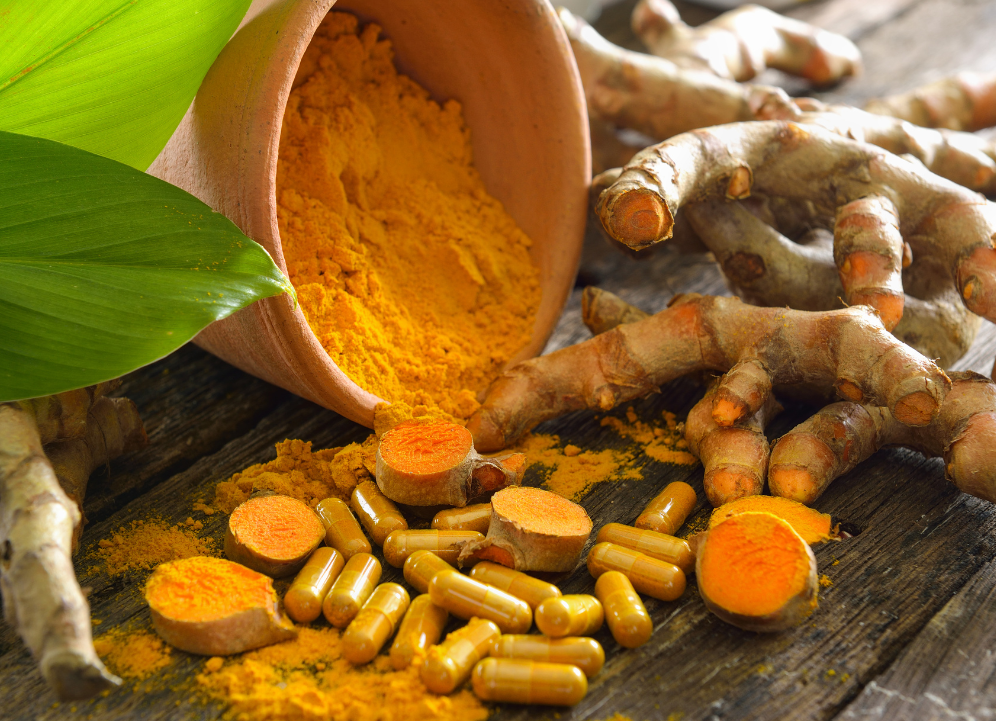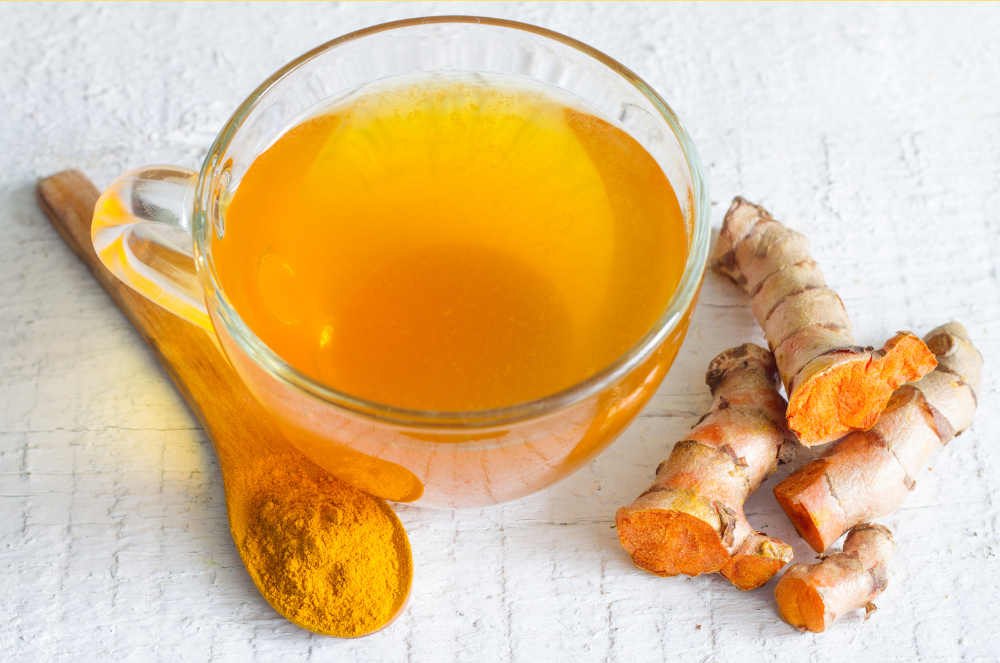From Ancient Ayuveda to Modern Labs – What Reasearch Reveals

Turmeric (Curcuma longa) is a bright yellow spice widely used in Indian and Asian cuisine. But beyond its culinary appeal, turmeric has been revered for centuries in traditional medicine for its remarkable anti-inflammatory and antioxidant properties.
The secret behind turmeric’s power? Curcumin—its active compound, which has been extensively studied for its potential to fight inflammation, reduce oxidative stress, and support overall health.
🔬 The Science Behind Curcumin’s Anti-Inflammatory Benefits
Chronic inflammation is linked to various health issues, including arthritis, heart disease, diabetes, and even neurodegenerative conditions. Studies have shown that curcumin can inhibit inflammatory pathways in the body, blocking the action of pro-inflammatory molecules like NF-kB and cytokines.
According to research:
✅ Curcumin is as effective as some anti-inflammatory drugs, but without harmful side effects.
✅ It may help reduce joint pain and stiffness in people with arthritis.
✅ Its antioxidant properties help neutralize free radicals, reducing oxidative damage in the body.
Evidence-Based Benefits (and Limitations)
1. Arthritis and Joint Pain
– Key Study: A 2021 Journal of Medicinal Food meta-analysis of 15 clinical trials found curcumin reduced pain in 58% of osteoarthritis patients, with efficacy comparable to NSAIDs but without gastric side effects.
– Effective Dose: 500–1,000 mg/day of standardized extract (95% curcuminoids).
2. Heart Health
– Landmark Research: A 2023 double-blind study in the American Journal of Clinical Nutrition showed 12 weeks of curcumin supplementation lowered oxidized LDL (the most dangerous “bad cholesterol”) by 33% in adults with metabolic syndrome.
3. Cancer Prevention (Caution!)
– What We Know: In vitro and animal studies show curcumin inhibits cancer cell proliferation (e.g., breast, colon).
– The Gap: Human trials remain scarce. Curcumin does not replace conventional treatments but may be a promising adjunct.
💡 But there’s a catch: Curcumin has low bioavailability, meaning it is not easily absorbed by the body. Fortunately, there are ways to boost curcumin absorption!
⚡ How to Maximize Turmeric’s Benefits?
To get the most out of turmeric, follow these tips:
1️⃣ Combine with Black Pepper
Black pepper contains piperine, which enhances curcumin absorption by up to 2,000%.
2️⃣ Eat with Healthy Fats
Curcumin is fat-soluble, meaning it absorbs better when consumed with healthy fats like olive oil, coconut oil, or avocado.
3️⃣ Use Heat
Cooking turmeric lightly can improve curcumin’s bioavailability, making it easier for the body to absorb.
🍛 How to Incorporate Turmeric Into Your Diet
Adding turmeric to your daily routine is easy! You can:
✅ Sprinkle it over roasted vegetables or soups.
✅ Blend it into smoothies for a nutrient boost.
✅ Stir it into tea or golden milk.
✅ Use it in curries, stews, and rice dishes.
🍵 Anti-Inflammatory Turmeric & Ginger Tea Recipe

Ingredients:
1 cup hot water
1/2 teaspoon turmeric powder
1/2 teaspoon fresh grated ginger
1/4 teaspoon black pepper
1 teaspoon honey (optional)
1 teaspoon lemon juice
Instructions:
1️⃣ Heat the water until hot but not boiling.
2️⃣ Add the turmeric, ginger, and black pepper. Stir well.
3️⃣ Let it steep for 5 minutes.
4️⃣ Add honey and lemon juice for extra flavor and benefits.
5️⃣ Enjoy warm and feel the anti-inflammatory goodness!
✅ Tip: Drink this tea daily to support immune health and inflammation reduction.
Effective Supplement
– Choose brands with phytosomal curcumin or BCM-95® (patented tech with 7x absorption).
Precautions and Interactions
– Pregnancy: Avoid high doses – turmeric may stimulate the uterus.
– Surgery: Stop use 2 weeks prior – mild anticoagulant effect.
– Medications: May enhance blood thinners (e.g., warfarin).
The Future of Research
– Neuroprotection: Ongoing studies explore its role in Alzheimer’s.
– Treatment-Resistant Depression: Phase III trials combine curcumin with antidepressants.
📌 Final Thoughts: Why You Should Include Turmeric in Your Diet
Turmeric is one of the most powerful natural anti-inflammatory foods, with extensive scientific backing. Whether you use it in food, tea, or even as a supplement (with your doctor’s guidance), it’s a great addition to a healthy, anti-inflammatory lifestyle.
Coming Soon
– “Ginger vs. Turmeric: Which Natural Anti-Inflammatory Wins?”
Join the Conversation!
– Do you use turmeric? Share your experience in the comments!
– Burning Question: “What’s the difference between turmeric and saffron?” Request a post!
In health and science,
M. A. Cidade
⚠️ Important Note:
This article is for informational purposes only. Always consult a healthcare professional or nutritionist before starting any supplement or dietary changes.
